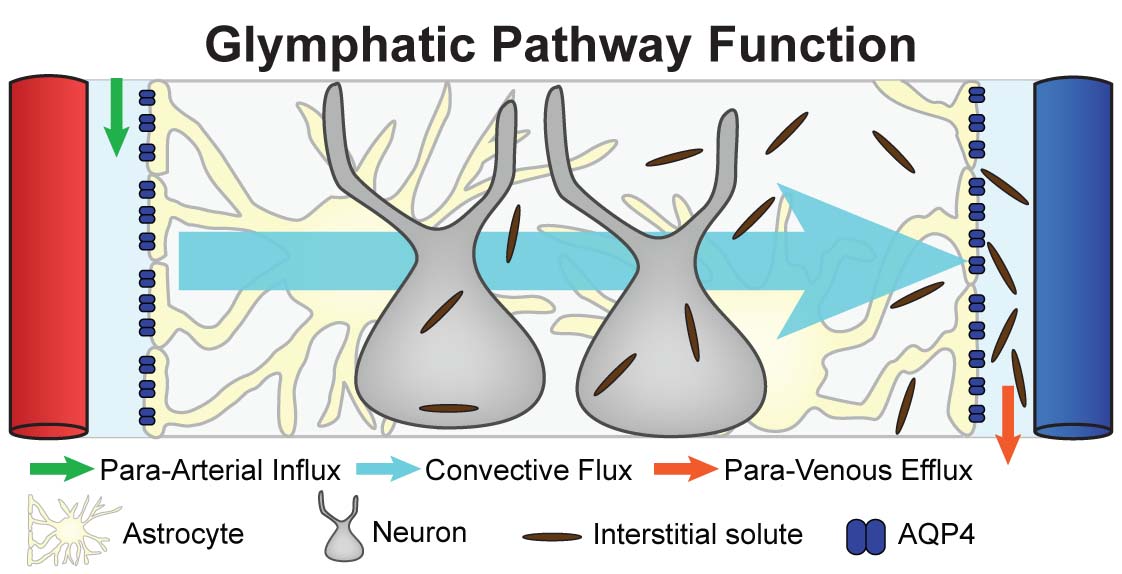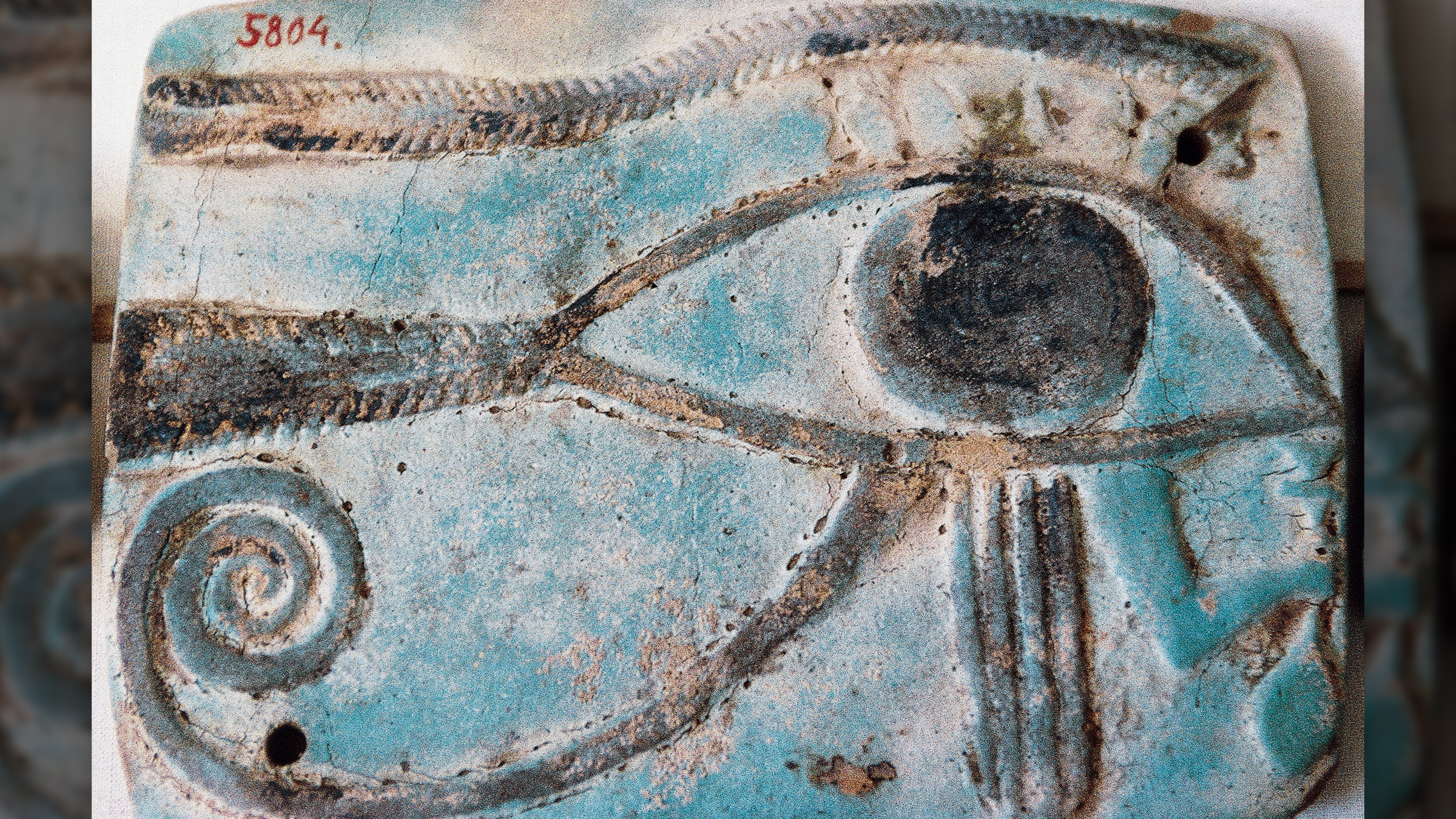Does the brain flush out toxins while you sleep?
As we sleep, the brain rids itself of waste built up throughout the day. But how?

We spend one-quarter to one-third of our lives sleeping, but while we rest, the brain remains hard at work, performing regular maintenance. Sleep is known to be important for learning and memory creation, and you may have heard that, during sleep, the brain rids itself of waste built up while we are awake.
But how does the brain flush these toxins out of its system, and why does this happen only during sleep?
The brain's waste-disposal apparatus is known as the glymphatic system, which includes a network of tunnels that surround blood vessels in the brain. This system is an analog of the waste clearance system found in the rest of the body, called the lymphatic system.
The tunnels in the glymphatic network contain a clear, watery substance called cerebrospinal fluid (CSF), which contains nutrients and physically cushions the brain. CSF from these tunnels into the spaces of the brain, where it mixes with another fluid found between active brain cells.
Related: How does the brain store memories?
Here, the CSF picks up metabolic waste from those cells; this includes amyloid-beta proteins, which build up in the brain in Alzheimer's disease. The "dirty" fluid then gets flushed out of the space and exits the brain through lymphatic vessels that funnel the CSF into the lymphatic system, where it's cleared away.
Aside from clearing away this waste, the glymphatic system helps transport fats, sugars and chemical messengers in the nervous system and may play a role in distributing drugs within the brain.
Sign up for the Live Science daily newsletter now
Get the world’s most fascinating discoveries delivered straight to your inbox.
The system was first discovered in mice, but brain scans have shown that this system also exists in the human brain.

"Glymphatic connection is the plumbing of the brain," Jonathan Kipnis, an immunologist at Washington University in St. Louis, told Live Science in an email.
The system depends on star-shaped cells called astrocytes, which form connections with blood vessels. Water channels in the astrocytes help the CSF flow from one place to another.
Dr. Maiken Nedergaard, whose team at the University of Rochester Medical Center discovered the glymphatic system in 2012, said the involvement of astrocytes in this important process surprised her.
"Neuroscience has always been very neuron-centric. Astrocytes were regarded as the housekeeping cells," she told Live Science. "And here, we are saying that astrocytes can tell the brain what to do."
The team uncovered the glymphatic system by putting fluorescent molecules in the CSF of mice and tracing its flow. In similar experiments, they found that this flow was tied to sleep — it decreased by nearly 95% in awake mice compared with sleeping mice.
Nedergaard theorizes that, because our brain focuses on integrating all the information we get when we are awake, it can't really clean itself at the same time, she said. "This definitely explains our biological need for sleep," she said.
A person's state of sleep also seems to affect how CSF navigates the maze of billions of neurons to remove waste. Sleep synchronizes neurons, sending high-energy waves of charged particles through the fluid between cells. This helps move CSF into these spaces.
That said, recently, there have been some contradictory results about whether sleep drives the flow of waste-carrying CSF out of the brain. Some scientists found that the process can happen independent of whether an animal is asleep or awake.
However, Kipnis told Live Science that an experimental method used in that study may itself affect glymphatic flow, muddying the results. In addition, he said many scientists agree that this waste clearance is most efficient during sleep.
Nedergaard added that there isn't enough data in the study about how waste is actually removed from the brain. "[The data looks at] moving the garbage from one room to another, not getting rid of it."
The glymphatic system is thought to accumulate wear and tear with age, and this could contribute to a buildup of waste and abnormal proteins, potentially leading to diseases like Alzheimer's. "I think that every disease that is affected by accumulation of debris would be dependent on glymphatic function," Kipnis said.
Nedergaard agreed. In theory, therapies aimed at improving sleep quality could benefit people with slow glymphatic flow and potentially slow the progression of neurodegenerative diseases, she noted.
Editor's note: This story was updated on June 24, 2024, to correct the description of the findings of the cited 2024 Nature Neuroscience study. The story was first posted June 19.
Ever wonder why some people build muscle more easily than others or why freckles come out in the sun? Send us your questions about how the human body works to community@livescience.com with the subject line "Health Desk Q," and you may see your question answered on the website!

Sneha Khedkar is a biologist-turned-freelance-science-journalist from India. She holds a master's degree in biochemistry and a bachelor's degree in microbiology and biochemistry. After her master's, she worked as a research fellow for four years, studying stem cell biology. Her articles have been published in Scientific American, Knowable Magazine, and Undark, as well as several Indian platforms such as The Hindu and The Wire Science, among others. Besides writing, she enjoys a good cup of tea, reading novels and practicing yoga.










